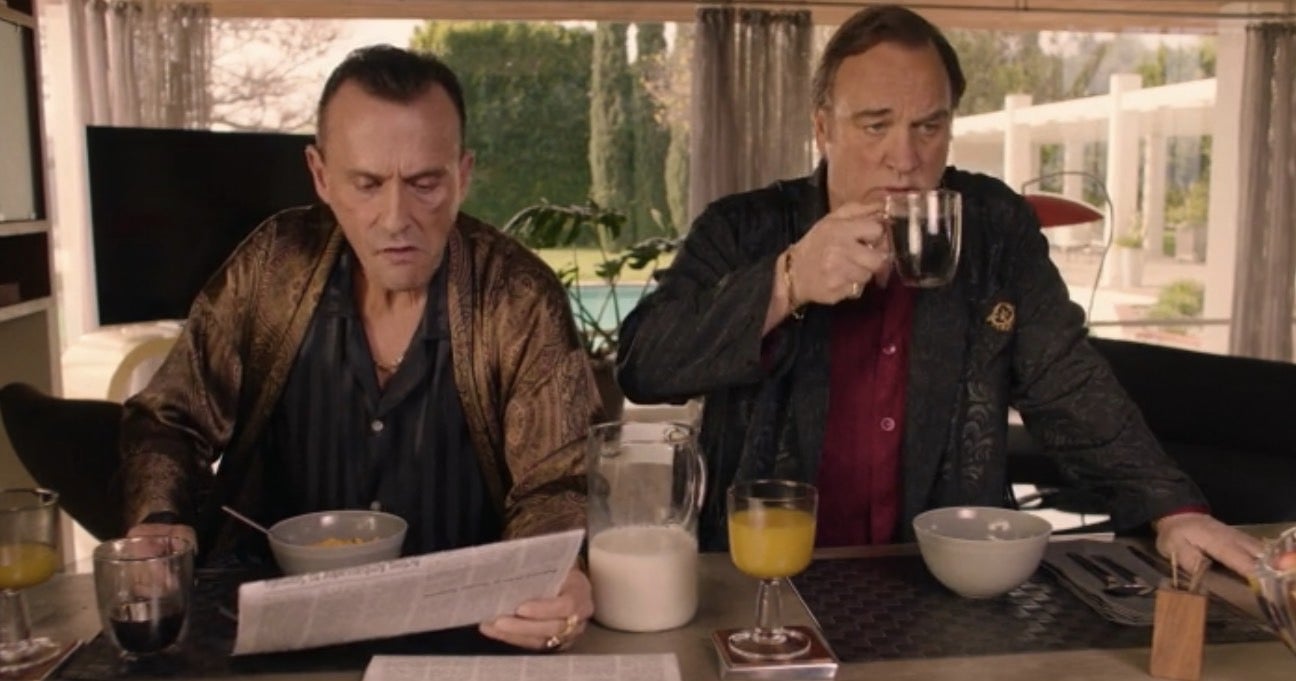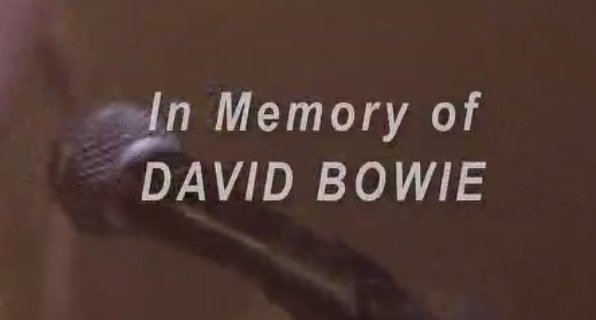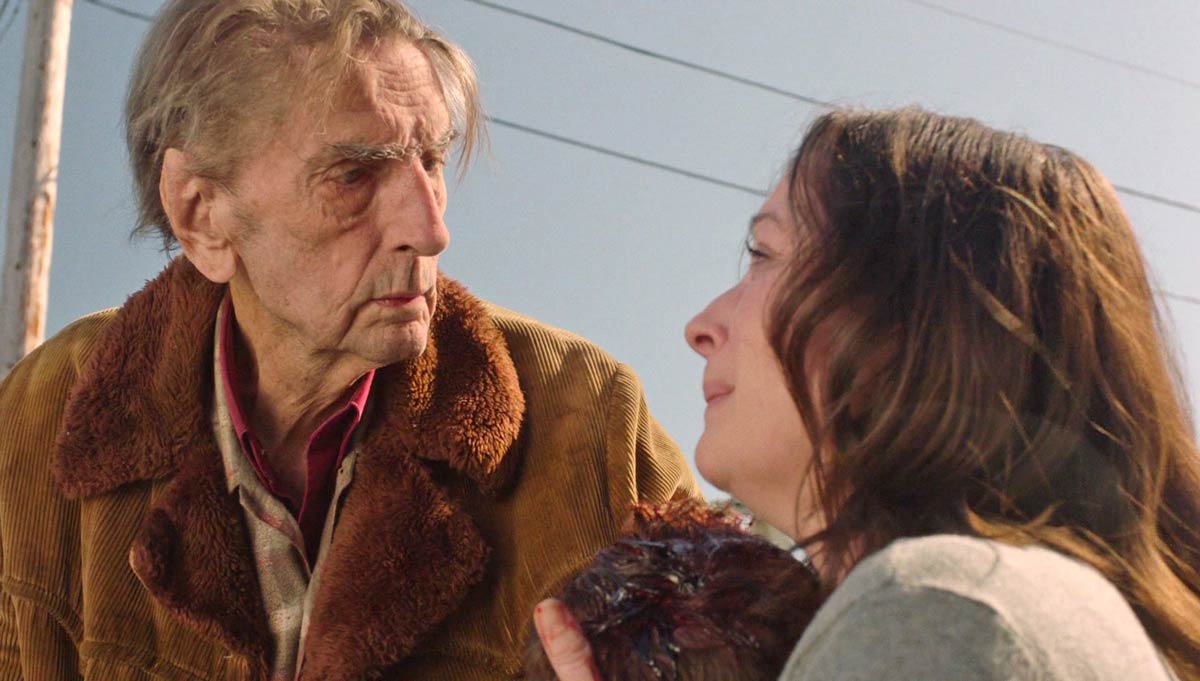David Lynch and Mark Frost’s heartfelt elegy to the original show is all about savoring the moment and fighting the good fight.
Twin Peaks: The Return has been, without question, the most satisfying television experience of my adult life. This may sound facetious, considering the unsettling, open-ended nature of the final episode. Of course, even before the finale aired, the show had already tested the patience of new and older audiences alike. The extended silences, the languorous pacing, and the surprising lack of Dale Cooper (Kyle MacLachlan) operating at his full capacities likely caused some viewers to drop out. Others waited with gritted teeth, hoping that the revival would eventually turn into something that more closely resembled the original series. Thankfully, David Lynch and Mark Frost had other ideas, and the results were brilliant, weird, poignant, and beautiful.
Perhaps the most illuminating anecdote about the show’s production comes from Jim Belushi, one half of the hilarious Mitchum brothers, who told Entertainment Weekly the following:
“I had to adjust my rhythm, and it started out with a cup of coffee,” Belushi said, “I poured a cup of coffee and started my line and [Lynch] went, ‘No. Nooooo. The coffee is very important.’ I spent 20 seconds pouring and sipping on a cup of coffee before I even started the scene.”
 |
| Rodney (Robert Knepper) and Bradley Mitchum (Jim Belushi) |
Whether showcasing a character’s delight in a good cup of joe or simply holding a scene a bit longer than “normal,” Twin Peaks: The Return is all about savoring the little moments of our lives. After all, what is the “Dougie” arc but a celebration of the fundamental joys of seeing the world with pure, childlike wonder?
“Savoring the moment” is perhaps an apt philosophy for a series so preoccupied with life’s impermanence. While the show’s primary antagonist, the supernatural Mr. C (Kyle MacLachlan again), leaves numerous corpses in his wake, the specter of death haunts the show in much more relatable ways. Several major and minor characters are terminally ill, Frank Truman’s (Robert Forster) PTSD-stricken son has committed suicide off-screen, and an innocent child is killed right before our eyes in a senseless hit-and-run collision. These and other personal tragedies, many inessential to the main plot, emphasize not just the tragic fates of the dead and the dying, but the burden placed on their grief-stricken loved ones.
Curiously, grief is replicated for the audience on a metatextual level. As the many “In Memory Of” credits remind us, the sheer number of departed Twin Peaks cast members is devastating. David Bowie, Catherine E. Coulson, Don S. Davis, Miguel Ferrer, Warren Frost, and so many more have left us, and their (re)appearance—some with flesh-and-blood performances, others through archival footage and CGI—force the viewer to confront death in ways that no other scripted television show, past or present, ever has.
As I watched each week, I couldn’t help but recall the words of Russian filmmaker Andrei Tarkovsky: “The aim of art is to prepare a person for death, to plough and harrow his soul, rendering it capable of turning to good.” As numerous characters face their own impending doom, Twin Peaks: The Return seems to ask, “Is there still time to turn toward the good?”
 |
| One of the show's many "In Memory" credits |
This question is addressed in many ways, not the least through its obsession with duality—one made literal by the plethora of doppelgangers, most notably the “bad” Cooper and the tulpa Diane (Laura Dern). But this binary of good and evil is not as clear-cut as it seems. Not only does the “bad” Diane struggle with divided loyalties, but the “good” Cooper becomes an ambiguous figure in Part 18, seemingly existing somewhere between the darkness and the light.
This notion of a divided self is not strictly limited to doppelgangers either. When the slimy insurance agent Anthony Sinclair (Tom Sizemore) fails to poison Agent Cooper, he suffers a complete breakdown and begs for forgiveness, crying out, “I only want to die or change!” Even in the show’s minor characters, we hear echoes of the old Turkish proverb: “No matter how far you’ve gone down the wrong road, turn back.”
Part of the reason I love the original Twin Peaks—beyond the charismatic decency of Agent Cooper, the hypnotic soundtrack, and the eclectic mishmash of genres—is the idea of a sleepy Mayberry-like community that holds dark, disturbing secrets. As David Foster Wallace once wrote about Lynch’s work – “Darkness is in everything, all the time—not ‘lurking below’ or ‘lying in wait’ or hovering on the horizon.’” Light and darkness coexist, and we see that explicitly in Twin Peaks itself, a place where Carl Rodd (Harry Dean Stanton), the no-nonsense manager of the New Fat Trout Trailer Park, brings comfort and aid to people in deep distress. And yet, it is also home to the disgusting, ponytailed trucker (John Paulsen) who sexually harasses Sarah Palmer (Grace Zabriskie) only to get his just desserts. Both men make up the fabric of the town, and the duality they represent exists in our communities, in our families, and perhaps even in ourselves.
 |
| Carl Rodd (Harry Dean Stanton) comforts "Hit-and-Run Mom" (Lisa Coronado). |
Certainly, our current political climate has made the darkness in others impossible to ignore. At times, the sheer futility of it all can be overwhelming. But in a world seemingly flushed down the toilet, perhaps that quack Dr. Jacoby (Russ Tamblyn) actually got something right. Through his nighttime alter-ego Dr. Amp, he gave us the prescription for what ails us all: Shovel your way out of the shit.
 | |
| Dr. Amp's Infomercial |
In hindsight, Lynch and Frost's seemingly throwaway joke is the perfect tool for digging into the show’s divisive, nigh-impenetrable ending. Whether our Cooper is trapped in an alternate dimension, a reconstituted timeline, or yet another Lynchian dreamscape is less important than what our hero will do the moment he regains his bearings. If we know anything about Cooper at all, it’s this: he may be down, but he’s not out. Sure, he may lose more battles in his war against the darkness, but he’ll keep fighting all the same.
And so should we.

1 comment:
Post a Comment